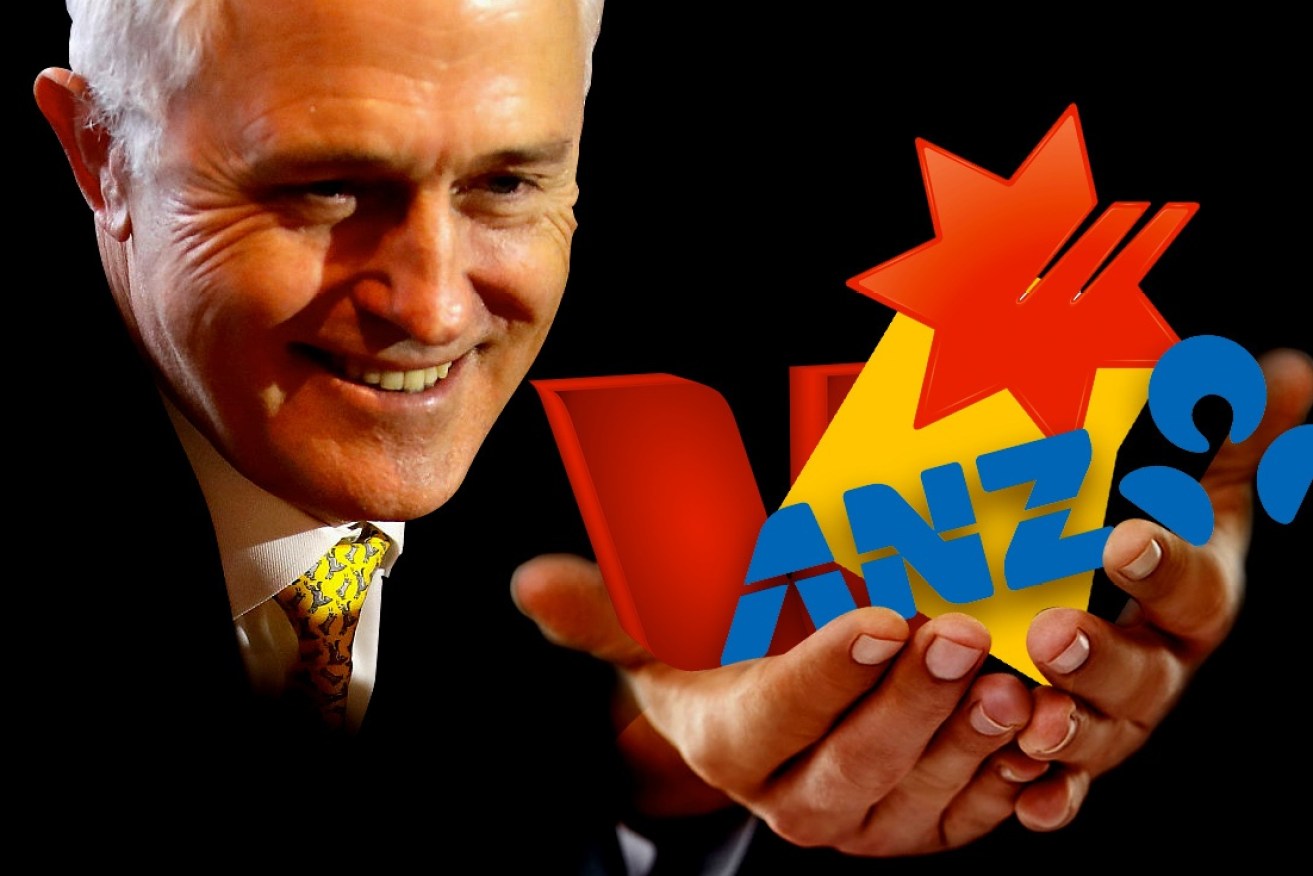The questions big bank CEOs must answer


The PM's plan will not place banks under scrutiny, experts say.
ANALYSIS
When Prime Minister Malcolm Turnbull announced the CEOs of our big four banks would be hauled before parliament, he called it “an opportunity for them to explain how they deal with customers” and would ensure the banks are “being honest and accountable”.
If the Prime Minister wants better banking, then these are the questions members of the committee should be asking the bank CEOs.
1. How can banks justify interest rates on mainstream credit cards of more than 20 per cent?
Australians have around 16 million credit cards, collectively owing more than $51 billion. Around two thirds of this debt is accruing interest.
While it’s estimated that 65 per cent of people repay their credit card on time and do not incur interest, the design of credit cards means that they cause financial distress for many. Most banks only require minimum repayments of 2 per cent of the amount outstanding, meaning that even repaying on time can hide a heavy interest burden. If you owe $5000 on an 18 per cent credit card and make minimum repayments, you’ll pay $17,180 over 33 years to pay it off.
Many Australians are unable to pay off their credit card balance in full each month. This is usually due to factors which could happen to any of us.
Unanticipated expenses associated with children or running the household, or a lower income due to loss of a job or a reduction in hours, means that you’ll be slogged by the bank.
For these people, it’s misleading to call them credit cards. Shouldn’t they be called ‘debt cards’?
2. Is it fair that banks wallop us with penalty fees? How are fees of up to $40 a pop justifiable?
The High Court recently declined to find that late payment fees are unlawful, however the question of fairness remains. When these fees were examined by the Federal Court, it was determined that the direct cost incurred by banks when a credit card was paid late was only a few dollars.
This pales in comparison to the fees that banks charge, and the fees are increasing. The burden of these fees fall most harshly on those that have lower balances in their accounts, or are unable to repay their credit cards.
To their credit, many banks offer ‘concession’ style accounts, which waive or significantly reduce fees. However most people eligible for these accounts aren’t accessing them. Banks need to ensure that those who are eligible for fee reductions receive them, otherwise they’re just an empty gesture.
3. Why all the incessant upselling?
It seems clear that commissions and bonuses for meeting sales targets routinely result in bank staff selling products to consumers that they don’t need, or are even inappropriate – resulting in very poor outcomes for some consumers. So why keep doing it?
When you walk into a bank branch or have a conversation with your bank over the phone they usually offer additional products. What you won’t be told is that the bank will be rewarded with commissions of up to 20 per cent of the premium to sell you this product.

Commonwealth Bank CEO Ian Narev.
Last week, Westpac announced that it will remove all product-related incentives across its branch tellers. The Australian Banking Association (ABA) has also kicked off an independent review. This is a great start.
Senior executive bonuses have unfortunately been excluded from the review being undertaken by the ABA. However, even the new Reserve Bank Governor Philip Lowe is now asking this question: do banking remuneration structures promote behaviour that harms consumers?
4. The issues of competition and innovation. Are banking products really working to benefit Australians, or are they being used to prop up banks’ profits?
Innovation in banking has created significant problems, primarily by pushing more risk onto everyday consumers. Complex investment products sold by financial advisers have blown up the life savings of many. Life and income protection insurance products have not paid out when people need them to.
Regulation is always playing catch-up, and it’s not able to compensate all those that lose out.
Over the coming years, the banks and the wealth industry will be developing products that turn Australians’ superannuation balances into retirement incomes.
How can we have confidence that the banks will put the interests of customers first in the design and distribution of new products?
Bringing the bank CEOs in front of a parliamentary committee will not satisfy calls for a Royal Commission into the banking sector.
However if members of the committee put these questions to the bankers and we get answers, we may move a step forward towards greater accountability and fairness for banking customers.
Gerard Brody is CEO of the Consumer Action Law Centre, an independent, not-for-profit consumer organisation based in Melbourne.








